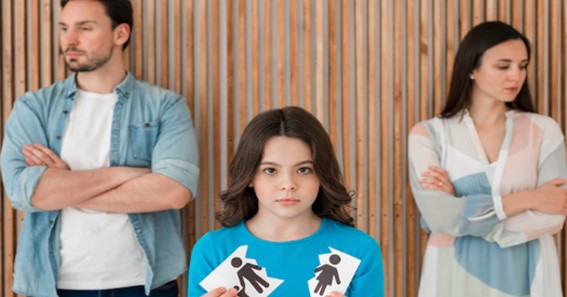One of the most difficult issues to resolve in divorces with children is the custody arrangement. Joint physical and legal custody will likely be part of your custody arrangement if both parents wish to stay active in their child’s life and the court has no compelling reasons to exclude one parent over the other. However, here the question arises about shared custody. What is that? Are joint custody and shared custody different?
If you are one of such parents who are undergoing divorce but have children, contact a child custody attorney to understand the differences and how you can proceed with the custody process.
Despite their differences in meaning, “shared custody” and “joint custody” are sometimes used interchangeably. To be sure, each of these terms refers to a different kind of custody.
With joint custody, both parents have an equal say in major parenting decisions and the child spends time with both of them.
Shared custody, on the other hand, prioritizes splitting parenting time equally between both parents. The goal of shared custody is to offer the parents the chance to divide the child’s physical time with them as evenly as possible.
You may notice some similarities between these definitions since shared custody is a very specific subcategory of joint custody. Therefore, the key difference between the two is that shared custody is about the amount of time the parents get to spend with their child, whereas joint custody is more focused on making legal decisions for the child.
Which One Is Right To Choose?
The short answer is that they are both right. In most cases, the parents of the children involved in a divorce have the right to decide what is best for their custody. In some cases, a custody mediator is a way to help parents agree in the best interests of the children. Having a neutral third party involved who doesn’t take sides is useful when it comes to resolving disagreements, and cooperating. The parents usually have the last word over the custody of their children in divorce court, but if they are unable to come to an agreement, the judge presiding over their case may mandate divorce mediation to speed up the process.
Since both joint and shared custody provides for the children’s fundamental and extended needs, parents must consider other issues, such as those listed below, before making a decision.
- Shared custody may be the best option if one parent works out of state or country for extended periods of time.
- Joint custody is a great option if both parents intend to spend their work life, retirement, and holidays in the same geographical area.
- Joint custody is most likely the best option if the kids are teenagers.
- Shared custody will be a good option in case one parent is permanently ill or injured.
- If one parent does not have a reliable source of income, shared parenting will address many present and future financial constraints related to child care.
To Wrap Up
The part of a divorce that people fear the most is the custody arrangements. In particular, when things are tense or emotional, neither parent wants to relinquish their parental rights or connection to the children, nor do they fully trust anyone else to take good care of the kids. In such situations, it is important to set aside your personal feelings and focus on the goal of preparing your children for success. If you have no idea how to handle such a difficult undertaking, start by learning about divorce and the parental rights connected to these two kinds of custody.







